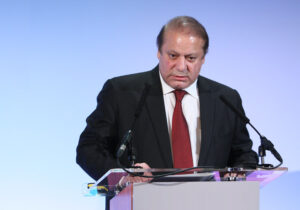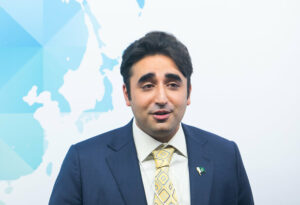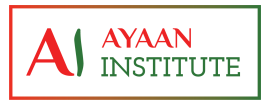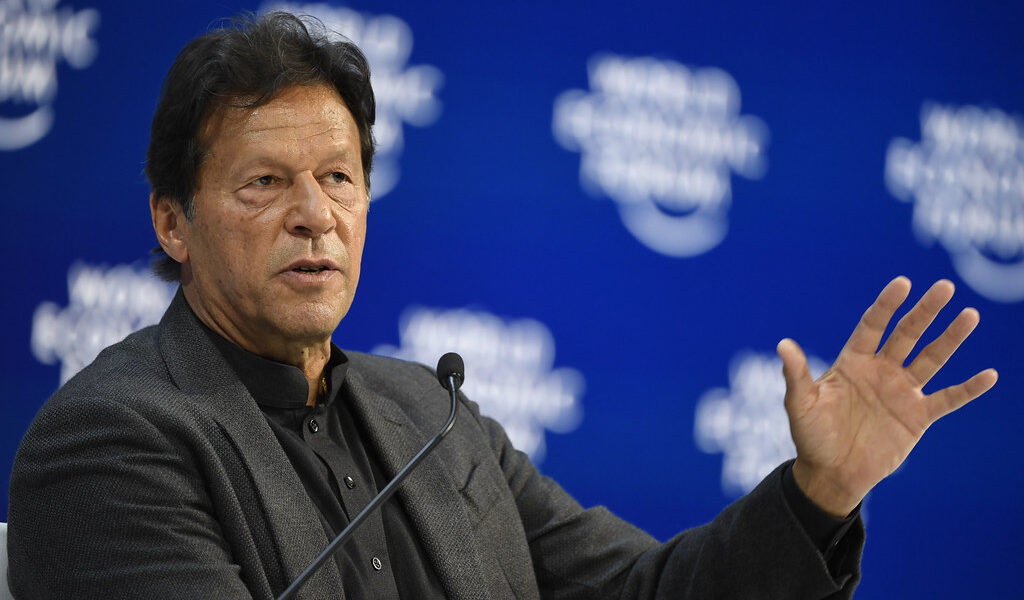As Pakistan faces elections following an aborted no-confidence vote in Prime Minister Imran Khan, Jahangir Mohammed, Director of the Ayaan Institute, says Pakistan needs politicians who will work in the people’s interests rather than for rich elites and the West.
Earlier today Pakistan’s Parliament expected to vote on an opposition party no-confidence motion against Prime Minister Imran Khan. It was predicted that Khan would have lost the vote. The opposition needed 172 votes to secure a majority and appeared to have secured 200.
Instead, the Deputy Speaker of the Parliament prevented the vote from going ahead and the PM has asked the President to dissolve Parliament and called for fresh elections. It is the first time a sitting Pakistani Prime Minister has faced a no-confidence vote on the performance of the economy.
Behind the motion were the two largest opposition parties – the Pakistan People’s Party and Pakistan Muslim League (N). Both have monopolised political power in Pakistan (along with the military). They are less political party and more feudal dynasty of the Bhutto/Zardari family on the one hand, and the Sharif family on the other.
Leaders of both have been accused of (or) found guilty of corruption, with Nawaz Shariff currently a convicted criminal on the run in Britain on the pretext of medical treatment. The current leader of the PML, his brother Shahbaz Shariff, has been out on bail for money laundering charges, since last year. Under various terms in power under both parties, corruption in Pakistan reached epidemic proportions and became institutionalised at all levels of the Pakistani establishment. The reach and support of the two party’s influence extend to the judiciary, the media, bureaucracy as well as big business.
Imran Khan and his Pakistan Tahreek-e-Insaaf Party (PTI) came to power as a movement in opposition to the United States War on Terror and later corruption in the country. The PTI broke the monopoly of the two-party system when it won the elections in 2018 and Khan pledged not only to root out corruption but to recover its proceeds and return them back to the people.
This meant that the leaders of the two main parties were not only under threat politically, but their finances and assets were at risk. Khan’s aggressive targeting of the two dynasties and their extended network of corrupt supporters meant there was always going to be resistance and fightback. Moreover, his own party contained people who had defected from other parties and were part of the old political networks. Most Pakistanis accept Khan to be the most honest Prime Minister Pakistan has had for a long time.
So this attempt to remove him from power was always about two things – corrupt politicians trying to save themselves from criminal charges and having their wealth confiscated; and the dissatisfaction of the United States with Imran Khan and Pakistan adopting an independent foreign policy.
A democracy not fit for purpose
There is no rule that says democratic political systems are by their nature immune from corruption or monopoly by ethnic, political or financial elites. Any political system can become corrupt. Especially one not grounded in a moral-ethical framework, but based purely on the notion of majority voting and party-political interests. Pakistani democracy is a case in point.
Pakistan inherited its political, bureaucratic, and educational culture from the British colonial Raj. Its political system emulates the British Westminster Parliament and oppositional style party politics (albeit it has a written constitution). It has a bicameral Parliament with a ceremonial president instead of a monarch. The National Assembly acts as the House of Commons. Politicians in Pakistan, as in Britain, do not work together in the best interests of the people they govern. Instead, they work for the interests o f their political parties, leaders, the elite and self-interests. They continuously seek to undermine and bring down the party in power and malign leaders. They are also just as susceptible to unhealthy influence by the rich elite or foreign interests as in Britain.
f their political parties, leaders, the elite and self-interests. They continuously seek to undermine and bring down the party in power and malign leaders. They are also just as susceptible to unhealthy influence by the rich elite or foreign interests as in Britain.
The difference is the British political system has had hundreds of years to mature, has developed a wider civil society to function as a check and balance on party politics, and has an educated and mature electorate. Britain also has a smaller population compared to Pakistan’s 220 million population and large regional electoral constituencies with different ethnicities.
British democracy emerged from its own traditions and history. On the other hand, Pakistan’s traditional Muslim polity and systems under the Mughals were replaced and alien systems were implanted under colonial administration. Who knows what system would have emerged if the traditional institutions had continued had history been different?
The result of this oppositional style of political party politics along with military intervention is that in 74 years of its history not a single Prime Minister has been able to serve out a full 5-year term. Although Pakistan’s powerful military has played its part in this, it cannot be held responsible for all political failings. It is also remarkable that people charged with criminal convictions are allowed to serve as leaders of political parties and in the Assembly. Politicians who have been charged seem to be able to also re-emerge and even become Prime Ministers. Had Imran Khan been replaced, Shahbaz Shariff (out on bail) would have become caretaker PM.
In Pakistan, there is no viable alternative currently to the existing political system. However, it also cannot continue with this failed style of politics. If Pakistan wants to continue as a democracy, then the nature of political parties, the operation of Parliament, and the governance of the country must undergo serious reforms. Pakistan’s dynastic and corrupt politics and governance cannot be allowed to continue. Corrupt business mafias have also artificially raised prices for political purposes against the government, punishing the poor in the process. During the Musharraf era, corrupt politicians laundered their proceeds into emerging privately owned media channels. These routinely promote total lies and false stories as news and must become better regulated.
Afghanistan, Pakistan and the United States
Prime Minister Imran Khan alleges that there was a foreign hand behind the recent no-confidence vote. Whilst the evidence has yet to be presented in public, if true there are two prime suspects – Britain and the United States (with Britain acting on behalf of the US).
Britain has so far not returned the convicted criminal Nawaz Sharif to Pakistan to complete his seven-year prison sentence. It has also refused to hand over his assets (deemed money laundering) and proceeds of corruption. This has allowed Sharif to plot opposition to Imran Khan from London.
 It is obvious that relations between Imran Khan and U.S. President Biden are strained. Biden has not so far engaged directly with him. Khan’s insistence on an independent foreign policy has irritated the West. He has refused to follow their line on Afghanistan, China, and more recently Russia. Although the U.S. started negotiating with the Taliban in Afghanistan as far back as 2011, they were expecting their puppet government and other factions to rule along with the Taliban. They were not expecting a return to Taliban rule alone i.e., not democratic politics they could have influenced and manipulated. They also blame Pakistan for their embarrassing withdrawal last year which affected their image as a superpower.
It is obvious that relations between Imran Khan and U.S. President Biden are strained. Biden has not so far engaged directly with him. Khan’s insistence on an independent foreign policy has irritated the West. He has refused to follow their line on Afghanistan, China, and more recently Russia. Although the U.S. started negotiating with the Taliban in Afghanistan as far back as 2011, they were expecting their puppet government and other factions to rule along with the Taliban. They were not expecting a return to Taliban rule alone i.e., not democratic politics they could have influenced and manipulated. They also blame Pakistan for their embarrassing withdrawal last year which affected their image as a superpower.
Whilst the U.S. needed to withdraw militarily to focus on the rising power of China and Russia, they also needed a foothold and bases in Afghanistan to destabilise China and its new Silk Road project (if the Silk Road is successful, it would make China the greatest economic power in the world). As an alternative, the U.S. requested military bases in Pakistan. Imran Khan has repeatedly turned down these requests. These bases would undoubtedly pit the U.S. against the Taliban and China.
An independent Afghanistan and an independent Pakistan are not in the U.S. interests in the region. It is likely the U.S. is prepared to let the Afghan people starve to secure their interests and will refuse to recognise them until they succumb to their demands. It is also obvious they need a compliant leadership in Pakistan to accede to their demands and pressure the Taliban and move both away from China. The U.S. will undoubtedly attempt to influence the outcome of any forthcoming election in Pakistan through the forces of corruption.
A defining moment for the people of Pakistan
It is becoming clear that the existing political party and the parliamentary system cannot bring an end to corruption in Pakistan and requires reform. The PTI is part of that system and has failed to end corruption from within.
Change requires the active involvement of the Pakistani people. The passive acceptance of corruption as a norm in Pakistani society (in Pakistan and abroad) allows corrupt practices to be considered normal and to flourish. An election is expected to take place sometime this year (this will be the first-time overseas Pakistanis can vote). However, the involvement of the people must not be limited to an election.
It is time for a mass Pakistani movement and debate on the type of society they want. This should be based on the Islamic principle of “Amr bil Ma’roof wa Nahi ‘anil Munkar” (enjoining right and forbidding wrong), independence from foreign interference, good governance and justice. Pakistani people around the world must be involved in that debate and ensure that the corrupt are held to account for stolen wealth and it is returned to the people.
This is a defining moment for the people of Pakistan and all its institutions. The outcome will also have an impact on the future of Afghanistan. The Pakistani people can choose the path of independence, and prosperity, free from foreign intervention and wars, or they can continue as usual, and see their country continue to deteriorate, pursuing U.S. policies in the region. They need politics, politicians, and a Parliament that work in their interests, according to their ethics and values, instead of those of the corrupt, or rich elites and the West.



Leave a Reply